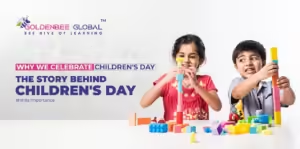
Introduction to Children’s Day: Honouring Young Minds
Children’s Day is observed worldwide to honour children, encourage their rights, and look after their welfare. The day comes with a jubilant atmosphere and other activities to make the children feel unique and loved. But amidst all the fun and frolic, history and the world’s commitment to children’s rights and welfare give it a more significant meaning. We are uncovering the history of Children’s Day, its meaning, and how it still shapes and affects societies worldwide.
Origin and International Celebration of Children’s Day
The conception of Children’s Day originated in 1925 due to the proposal raised during the World Conference on the Care of the Child in Geneva, Switzerland. Recognizing that children deserve a day of their own, separate from all other celebrations, many nations adopted Children’s Day in some form. While the dates vary and local customs are unique, one common denominator is the sense of celebration to raise children’s lives, recognize their rights, and give attention to what needs improvement.
Global Variation: A Day for the Children of the World
Other than India, many other countries celebrate Children’s Day on different dates and for other reasons. For instance, the United Nations established Universal Children’s Day on November 20, 1954. It was to urge nations to dedicate this day to promoting and celebrating children’s rights and the welfare of the young. Other countries also observe Children’s Day in their respective ways, and every nation has tried to fit this Day according to their culture and social needs in societies. These celebrations all put the same message: that children are valuable and deserve love, care, and equal rights.
Importance of Children’s Day: More than a Celebration
Promoting awareness of children’s rights
The main reason to celebrate Children’s Day is to raise awareness of children’s rights, which demand protection of safe and nourishing conditions for children to grow. Most children do not have a chance to enjoy proper education, while others even undergo abuse. The governments, NGOs, and communities recognizing Children’s Day point out these problems in a collective effort to build a better future for all children.
This is why Children’s Day also serves as a reminder of children’s critical role in shaping the future. The quality of today’s children determines the quality of tomorrow’s leaders. The quality of their upbringing, education, and health will directly influence society. Therefore, securing their growth, happiness, and security is investing in a brighter, more prosperous world. Indeed, Nehru’s famous words, “Children are like buds in a garden and should be carefully and lovingly nurtured,” resonates deep within today to underline the necessity of focusing on the children’s needs.
Education Facilitation, as well as Equal Opportunity
The other aspect of Children’s Day, which is critical to celebrating this holiday, is education. Due to socioeconomic factors, many children in various countries never get the opportunity to attend school or receive a simple education. On this particular day, various programs are run by schools, governments, and organizations campaigning for education for all, ensuring there is an opportunity for school attendance irrespective of their background.
How Children’s Day is Celebrated
School Programs and Festivities
Schools in India and several other countries are hectic today celebrating Children’s Day. The day is marked with many fun games, dances, and cultural performances capable of entertaining and holding attention. Teachers and employees establish a setting where children feel cared for and loved. For instance, in some institutions, even teachers do it for the children so they can appreciate them for bringing them such a day and making it memorable.
The second major characteristic that defines Children’s Day involves community service and charity work. Organizations will generally hold activities in which unprivileged children are supplied, fed, or offered a brief moment of pleasure through puppets, musical performances, and play with the great outdoors. There is always a common need for everyone to bond while reminding the rest of the world about its shared obligations to nourish and mould all children.
To promote the welfare of children, several awareness programs are conducted to make parents, guardians, and communities aware of child protection, health, and education. Governments, NGOs, and other organizations often organize seminars, workshops, and public speeches on topics like child labour, abuse prevention, and mental health. These kinds of awareness programs have a lasting effect in improving the environment wherein children grow.
Long-term Effect of Children’s Day
A Commitment to Defend and Support Children
Children’s Day is a day of fun and frolic, but it also reminds me of our commitment to a safer and more caring world for children. It is a day on which every individual is called to work actively toward the health, security, and protection of children. In return, we take steps toward an entire generation that will value empathy, kindness, and resilience.
Inspiring a Culture of Child-Centric Growth
The annual celebration of Children’s Day introduces a culture that appreciates children and considers their needs first. As they grow up, children learn to appreciate all the love and care extended to them, which also develops their personalities and desires. They become people who value their communities and do positive things, and thus, Children’s Day is an important ritual in bringing up responsible and well-rounded citizens.
Conclusion: Celebrating Children Today for a Better Tomorrow
Children’s Day celebrates the glee, potential, and dreams hidden in each child. The festivities and the good message they convey remind us to nurture, protect, and educate young minds. We reaffirm our commitment each year while celebrating this day to lay a better future for children to grow, thrive, and lead the world with hope and courage.
Let’s make each day a Children’s Day by cherishing and nurturing the children around us so they are well-equipped to enjoy life and make all their dreams come true.














